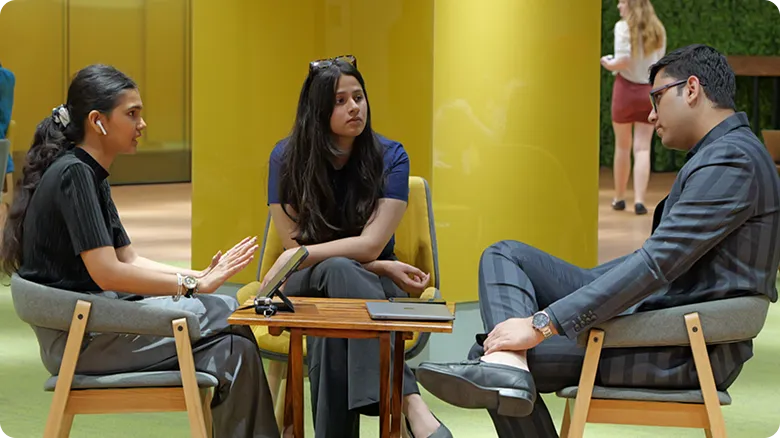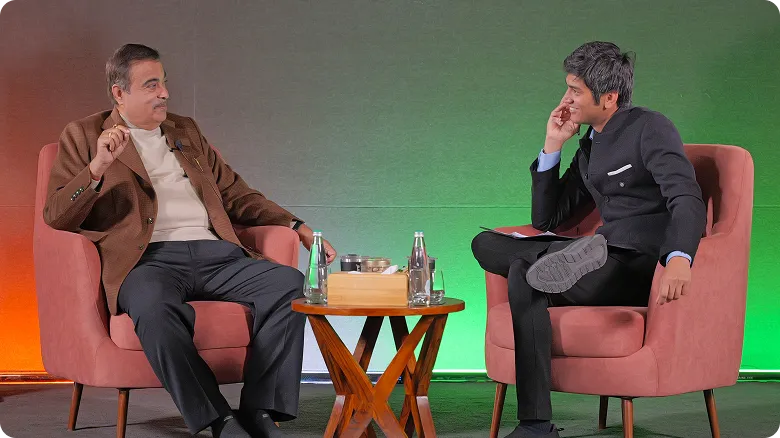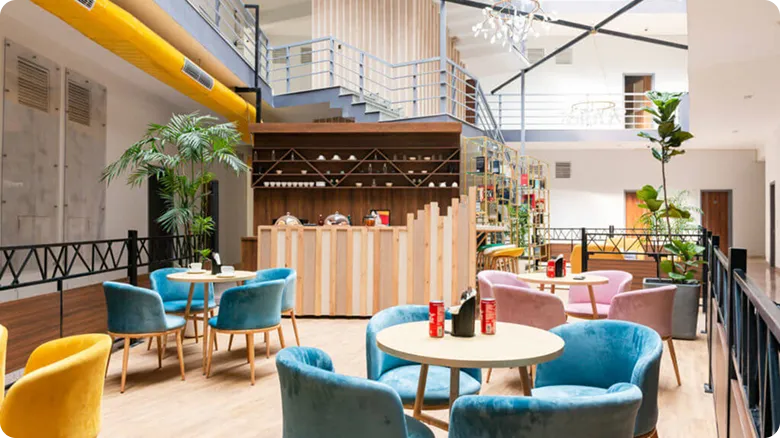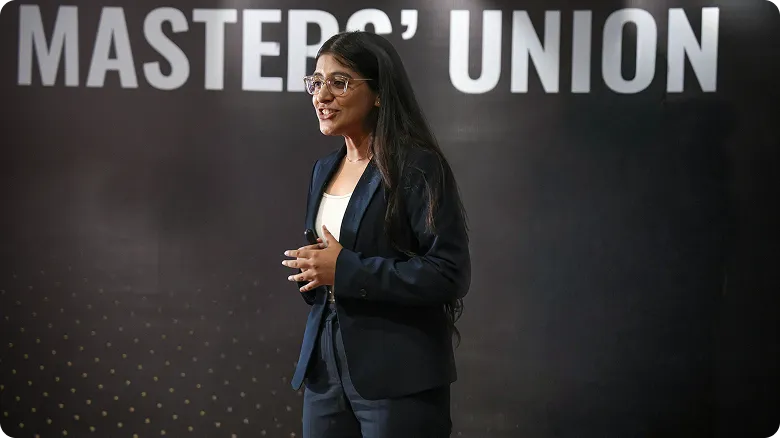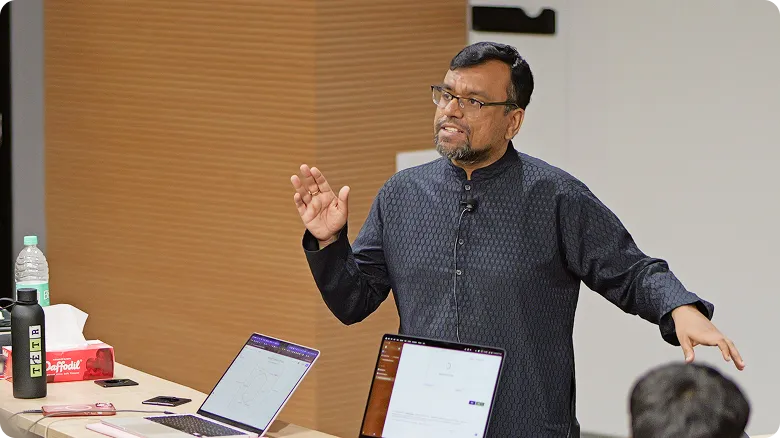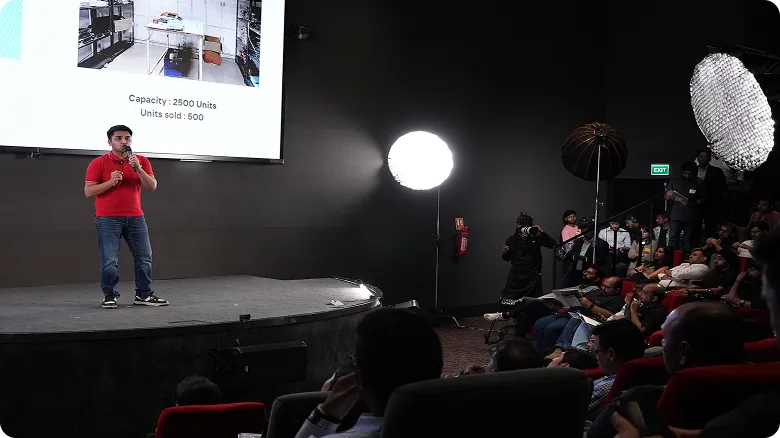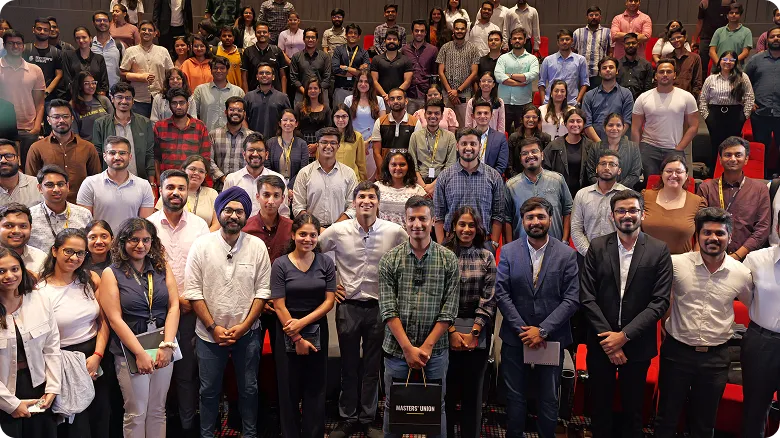Undergraduate
Undergraduate (Global)
Postgraduate
PGP in Technology and Business Management
PGP in Technology & Business Management
(Young Leaders Cohort)
PGP in Human Resources & Organisation Strategy
PGP in Sports Management & Gaming
PGP in Applied AI & Agentic Systems
PGP in UI/UX & Product Design
PGP in Sustainability & Business Management
PGP Bharat
Executive
Family Business
Careers
Innovations
Faculty
MU Ventures
Enterprise Education
Student Life
Jobs
Become a Master
events
For Companies
Blog
Business
Why Peyush Bansal Invested In The State Plate
April 24, 2025
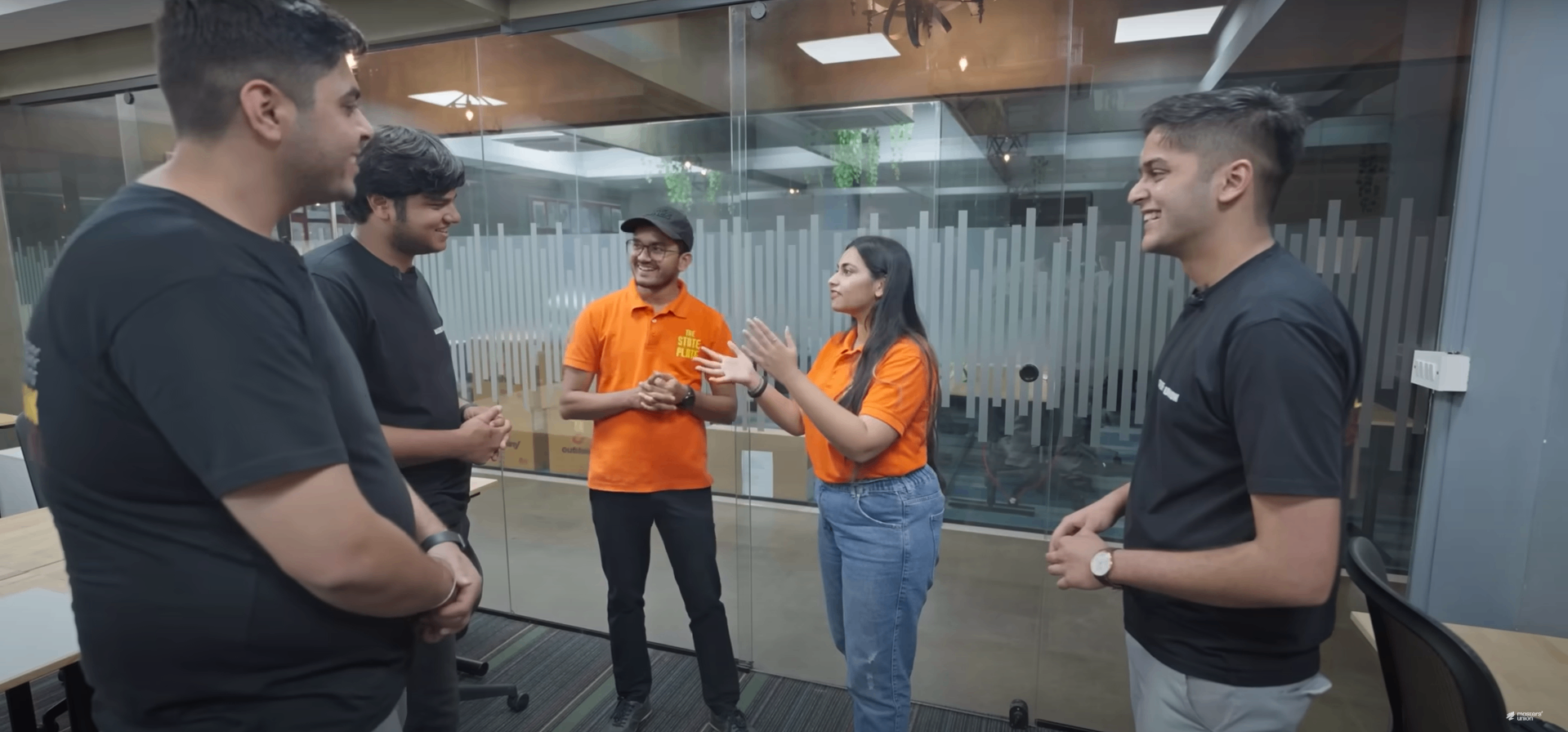
In a country where food is as diverse as its people, The State Plate set out with a bold mission to bring authentic regional Indian delicacies to doorsteps across the nation.
What started as a modest college project has evolved into a thriving food brand, now eyeing international markets and offline expansion, thanks to a strategic acquisition by JustMyRoots.
In a candid conversation, the founders walked our students through their entrepreneurial journey of how they went from curating regional delicacies to launching their own private label.
Want to watch the video instead?
As part of #Offcampus, Masters’ Union students flew to Bangalore to meet Raghav Jhawar and Muskaan Sancheti, founders of The State Plate, and learn about their business.
Watch this video to learn why Peyush Bansal and Shark Tank India judges backed this D2C brand:
Building a Brand from the Bazaar
The story of The State Plate began in university dorm rooms, driven by a shared love for food and culture. What initially started as a marketplace for regional snacks quickly evolved into something bigger: a purpose-led brand with its own product line.
Rather than merely listing third-party goods, the team began introducing private label products, accounting for 40% of their current revenue. This gave them greater control over quality, margins, and brand identity, while still catering to loyal customers of branded regional favourites. Today, State Plate's product mix reflects a careful balance between curation and creation.
“Our goal was to provide a platform that brought the taste of home to every plate wherever that home may be,” the founders shared.
A Self-Funded Start with Strategic Growth
In the early days, the team bootstrapped operations and focused on lean growth, strong vendor relationships, and customer feedback. This self-funded stage allowed them to refine their business model without external pressure, ensuring their product-market fit was solid before raising capital.
Once the foundation was laid, strategic fundraising enabled expansion particularly in logistics, product development, and digital infrastructure. The founders noted that solid unit economics and clarity of vision helped them attract the right investors in an unpredictable funding landscape.
The Vendor Relationship Advantage
A key differentiator for The State Plate is its authenticity. They built deep, trust-based relationships with local vendors who produce artisanal snacks, pickles, and spice blends in small batches.
Each product undergoes a rigorous vetting process (sampling, trials, and quality testing) to ensure it stays true to its origins. This vetting helps protect brand reputation and guarantees that what customers receive is as good as what they’d buy in their hometowns.
Navigating Profitability: Branded vs. Private Label
The revenue split (60% branded products, 40% private label) reveals a thoughtful scaling strategy. While private label goods bring in higher margins, they also come with challenges like inventory risk, manufacturing coordination, and brand-building costs.
By continuing to stock trusted branded products, The State Plate retains customer loyalty and operational flexibility, while gradually growing its high-margin offerings. This hybrid model ensures financial viability and positions them to pivot quickly based on market demand.
Offline Expansion: Going Beyond E-commerce
While The State Plate was born digital, the team is now preparing for offline retail growth. Their acquisition by JustMyRoots has opened up resources and infrastructure to experiment with physical stores. For the young founders, offline presence is about visibility and creating experiential touchpoints for customers who want to see, touch, and taste before they buy.
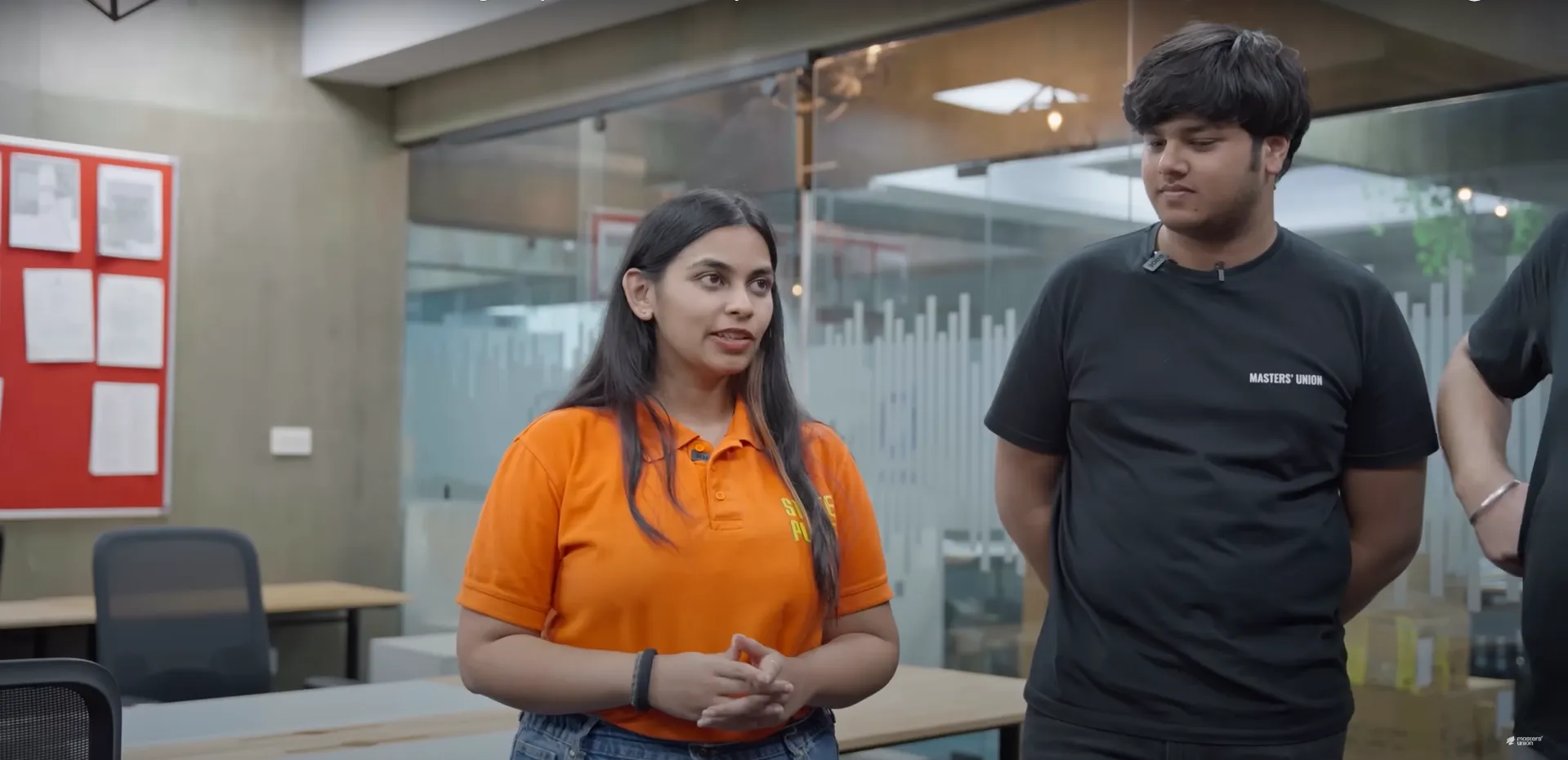
Digital First, Always
Despite offline ambitions, the digital muscle built early-on remains a key strength. Platforms like Facebook helped them gather customer feedback, test products, and drive conversions with minimal spend. Their digital-first approach enabled them to scale faster and smarter, identify top-performing SKUs, tweak packaging based on reviews, and use e-commerce data to guide inventory planning.
Final Thoughts: A Blueprint for Modern Food Start-ups
State Plate’s journey is a compelling case study in lean entrepreneurship, cultural storytelling, and strategic growth. By combining their love for food with operational discipline and smart funding decisions, the founders showed us how a niche idea can scale without losing its soul.
As they eye global expansion and offline formats, their story offers valuable lessons for young entrepreneurs in the food sector:
-
Start small, stay focused
-
Know your customers deeply
-
Balance profit with purpose
-
Let authenticity drive everything
From college canteens to kitchens across India, State Plate is more than just a food brand — it’s a celebration of home, heritage, and hustle.
Want more stories like this? Follow Masters’ Union blogs for real stories, real lessons, and real founders reshaping India's business landscape.






